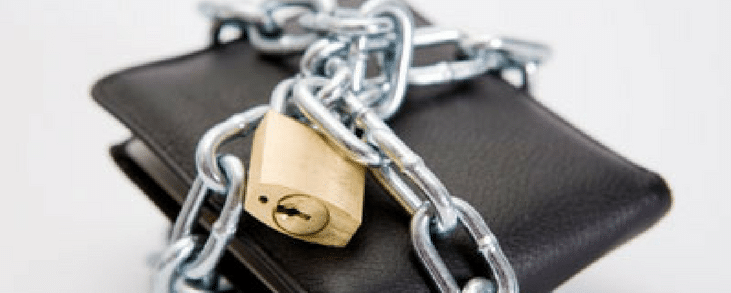Wage garnishment is one of the many potential issues you can run into if you’ve fallen behind on your debts. But if a creditor or debt collection agency threatens to garnish your wages to repay what you owe, it’s important that you understand your rights and how the process works.
Can Creditors Garnish Wages?
Yes, creditors can garnish wages to satisfy debts that you owe. In fact, according to the latest data from ADP, roughly 11 million people have their wages garnished every year.
But can creditors garnish wages on their own? Sometimes, but we’ll get into the exceptions in a minute. In general, though, wage garnishment is possible only with a court order that allows it, which means your lender will need to sue you and win a judgment against you.
That judgment will allow the creditor to collect funds directly from your paycheck through your employer until the amount owed is satisfied. Private and government organizations can garnish an employee’s wages in order to collect on a majority of unpaid debts.
This can be very frightening and stressful, as you may not know who to turn to to get the best possible help in resolving the judgment or lien against your home or bank account.
As a result, it’s absolutely crucial that you respond to the lawsuit by the date provided in your summons. If you don’t, the court will typically award a default judgment to the creditor, including any monies they specify in their suit.
It’s also a good idea to hire an attorney who can help you navigate the complexities of the legal process, educate you about your rights, and work on your behalf to resolve your debt situation without wage garnishment.
How/Why Are My Wages Being Garnished?
Once a judgment is granted by the court, the creditor has a few options to enforce the judgment and collect the money. One way is the garnishment of your wages (also known as income execution).
If you owe child support, back taxes, or student loans, your creditors can sometimes garnish your wages without a court order.
Credit card companies can also garnish your wages for debts owed, but they must have a court order first. When a wage garnishment is in place, your employer holds back some of your wages and gives the money directly to the creditor through the Sheriff or Marshall.
What Are the Limits on Wage Garnishment?
In New York State, creditors can garnish up to 10% of your gross wages or 25% of your disposable income in most cases. With some types of debts, creditors can take even more.
If you make less than 30 times the minimum wage, though, you’re exempt from income execution. Also, some types of earnings are considered exempt funds, including social security checks, retirement funds, disability, and child support.
In the majority of states, interest may be charged on a judgment, either at any rate spelled out in state law or at the rate described in the contract you signed with the creditor. Additionally, the judgment may include court costs and attorney fees.
Note that your employer will find out if the matter remains unresolved. However, it is unlawful to fire you because of a wage garnishment.
Can I Challenge a Garnishment?
You have the right to object to the amount of money a creditor is garnishing or even the garnishment itself. You can do this by filing a Claim of Exemption with the court that issued the underlying garnishment.
If you’re uneasy about a garnishment, don’t ignore it until it goes away. Once the creditors garnish your wages, they can continue to collect for up to 10 to 20 years, depending on your state and there is often post judgment interest on the balance that you originally owed to your creditor building up making what you owe even more.
For this sole reason, it’s advised to try and avoid receiving a judgment in the first place. But if you’re already past that point and have a legitimate reason for objecting, start the process as soon as possible.
How Can I Get Help With Wage Garnishment?
Your best option when a debt gets that far is to seek professional help. An attorney may be able to prevent the garnishment and resolve the matter for you. Our suggestion is to be proactive about seeking help and never wait until you get to the garnishment stage.
Wage garnishment can be scary and stressful. If a credit card company or other creditor is garnishing your wages, it’s best to try to resolve the debt as soon as possible. In some cases, dealing with wage garnishment may be too complicated or time-consuming to handle on your own. If this is the case, you should consider seeking help.
At Tayne Law Group, we are proficient in resolving judgments in a number of different ways. Our experienced staff can talk to you today about how we can get your judgment or lien thrown out or resolved through the debt resolution and settlement process. Contact us today at 631-470-8204 for a free, no-obligation phone consultation to find your your rights and how our team can help you.





